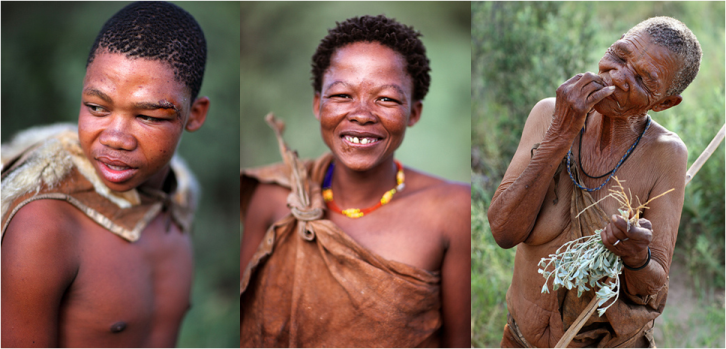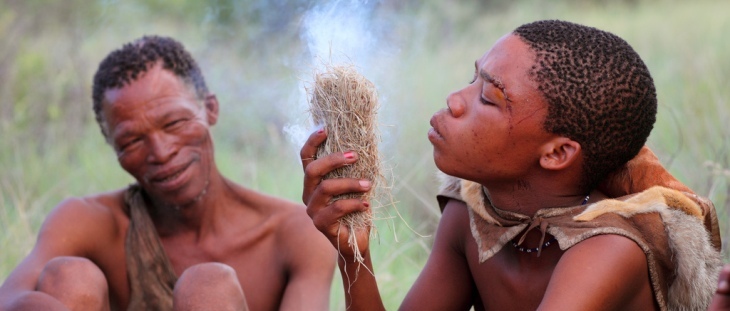-
January 18, 2014
Gallery: The Forgotten Asiatic Lion (And Why Po... -
July 04, 2013
Conservation’s Dark Side: How the Bushmen... -
June 18, 2013
Researchers Use Laser Technology and Find a Lon... -
June 16, 2013
What Happens When Artists Look at the Brain? -
June 13, 2013
A Sunken Egyptian City is Rediscovered, Stunnin... -
June 06, 2013
Why Should We Eat Insects? It’s the Futur... -
May 16, 2013
High School "Citizen Scientists'" Work May Help... -
May 06, 2013
CozmicZoom: An App That Will Humble You As You ... -
April 23, 2013
My Grandfather Is In A Sugar-Apple -
April 19, 2013
The Only Positive Effect Of The Cuban Embargo? ... -
March 22, 2013
The Unhappiest Place On Earth (And How Happines... -
March 14, 2013
Tackling Mental Illness In Africa -
March 05, 2013
The Violent History Of Mauritia: Birth, Oblivio... -
February 19, 2013
Is Global Warming Chiefly Manmade? One Graphic ... -
February 14, 2013
Lovers' Hearts Beat At The Same Rate Everyday -
January 22, 2013
My Med Student Friends Are Zombies: On The Comp... -
January 16, 2013
A Story Of Happy And Sad Endings: On An Afflict... -
October 16, 2012
Fukushima Dogs Had Symptoms Comparable To Post-... -
October 03, 2012
Statistics Is The Sexy In Science -
September 18, 2012
New Smart Light Bulb LIFX Might Just Revolution... -
September 14, 2012
Watch New Footage Of Curiosity Landing On Mars ... -
September 11, 2012
Forget Aeolians, We Need Airborne Wind Farms To... -
August 30, 2012
The Internet Is Not Free: We're In The Filter B... -
August 24, 2012
When A Science Writer Turns His Back On Science -
August 16, 2012
When Peer Review Turns Frustrated Authors Into ... -
August 01, 2012
Chronicling The Coming Of Age Of Two Turtledove... -
July 21, 2012
Soccer's Big Data Revolution -
July 11, 2012
Leap Motion: Death Of The Mouse -
July 04, 2012
Higgs Boson: the jokes edition -
June 29, 2012
A Call To Arms For Young Science Journalists -
June 22, 2012
Your Musical Brain -
June 15, 2012
Science With Religion Can Save More Lives -
June 07, 2012
Keep Cool Science Journalists -
May 24, 2012
Son's Cells Linked To Mother's Cancer -
May 10, 2012
Bat-Robot: From Batman To Reality -
May 08, 2012
That The East Is Rising Is Great (Not Bad) News -
May 03, 2012
The Disorder That Killed One Soccer Player And ... -
April 20, 2012
A Rose By Any Other Name Would Look As Red -
April 13, 2012
My Attempt To Further Promote Young Science Wri... -
March 28, 2012
FuturICT: The Tool That Promises To Predict The... -
March 14, 2012
6 Android Apps For Geeks -
March 02, 2012
Lenses On Biology: Scientists And Science Stude... -
February 24, 2012
A Mauritian At Science Online 2012 -
January 03, 2012
Undressing The Brain With Scale -
December 11, 2011
Love You Melbourne -
November 23, 2011
Funny Things Peer-Reviewers Are Saying Behind Y... -
November 05, 2011
What Is The Place Of New Science Bloggers In To... -
October 27, 2011
Scientists Should Remember That Science Is Much... -
October 22, 2011
Of Kindle, Instapaper and Thesis-ing -
September 04, 2011
Encephalon #90 -
August 07, 2011
Define Science -
July 27, 2011
Your Baby On Crack -
July 17, 2011
Are fMRI Telling The Truth? Role Of Astrocytes ... -
July 08, 2011
15 Mistakes Young Researchers Make -
July 05, 2011
Scientific American's New Science Blogging Netw... -
July 03, 2011
Is Google+ The Google Portal? -
July 02, 2011
Social Media: Getting Content That Interests You -
June 02, 2011
In Science, The More The Merrier -
May 15, 2011
Science Blogs Are Good For You -
May 11, 2011
Medical Research In Australia Is Safe -
May 06, 2011
When The Microscope Goes Digital -
May 05, 2011
In Which I Won A Science Blogging Contest -
April 29, 2011
Science On Royal Wedding Day -
April 22, 2011
The Neuroscience Of Smurfs -
April 14, 2011
Medical Research Funding Cutbacks: Proof That S... -
April 10, 2011
Take A Stance Against Medical Research Cutbacks... -
April 03, 2011
Should Extremely Preterm Babies Be Saved? -
March 30, 2011
Dopamine: The Link Between Neuronal Activity An... -
March 21, 2011
Honors Students Are Newbies -
March 18, 2011
Common Ancestry: We Come From One -
February 25, 2011
Google Teaches Me How To Cook -
February 14, 2011
First Time At The Research Department -
January 31, 2011
Brains Breathe: Dopamine's Role In Preterm Infants -
January 27, 2011
More! More! More! -
January 20, 2011
Building Models: When Science Can Be Fun -
January 14, 2011
An Enjoyable Medical Exam -
January 05, 2011
Application Hassles -
December 29, 2010
The Exam Effect -
December 23, 2010
Welcome, welcome! -
December 20, 2010
In which I help out a researcher...
« Prev « Prev Next » Next »
























